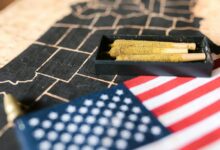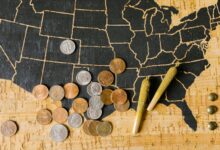Is Cbd Legal in Nc

The legal status of CBD in North Carolina is shaped by both federal and state regulations. Under these laws, CBD products must contain less than 0.3% THC to be considered legal. However, the intricacies of the legislation present challenges for consumers and businesses alike. Understanding the specific guidelines is essential, as compliance impacts product availability and safety. This raises questions about the future of the CBD market in North Carolina and its evolving landscape.
Overview of CBD Legislation in North Carolina
Although the legality of cannabidiol (CBD) has gained considerable attention in recent years, the framework governing its use in North Carolina remains complex.
The legal status of CBD products is contingent upon specific regulations, including the source of CBD and its THC content. While some products are permitted, others may face restrictions, reflecting a nuanced approach to cannabis legislation in the state.
Federal Regulations Affecting CBD
The legal landscape for CBD in North Carolina is significantly influenced by federal regulations, which establish the baseline for legality across the United States.
Federal enforcement delineates the boundaries of hemp classification, distinguishing legal CBD products from prohibited substances.
This framework underscores the necessity for compliance among producers and consumers, while also promoting an environment conducive to the expansion of the hemp industry within established legal parameters.
State-Specific Laws and Guidelines
Navigating the legal framework surrounding CBD in North Carolina requires an understanding of state-specific laws and guidelines that complement federal regulations.
North Carolina defines legal CBD products as those containing less than 0.3% THC.
Compliance with these legal definitions is essential for both consumers and producers to ensure the lawful sale and use of CBD, fostering an environment of freedom within the regulatory landscape.
Implications for Consumers and Businesses
Understanding the legal definitions surrounding CBD in North Carolina carries significant implications for both consumers and businesses.
Enhanced consumer awareness fosters informed purchasing decisions, while clear regulations necessitate stringent business compliance.
Businesses must navigate these legal frameworks effectively to ensure product safety and legality, thereby protecting consumer rights and promoting industry integrity.
This dynamic landscape ultimately shapes trust and growth within the CBD market.
Conclusion
In a state where the aroma of barbecue fills the air and sweet tea reigns supreme, one might expect the legal landscape around hemp-derived products to be as straightforward as a country road. However, the intricate web of regulations governing CBD in North Carolina reveals a paradox: while consumers can legally enjoy CBD's benefits, they must navigate a maze of restrictions to do so. Thus, the quest for clarity in the CBD market becomes a quintessential Southern endeavor—both essential and perplexing.






